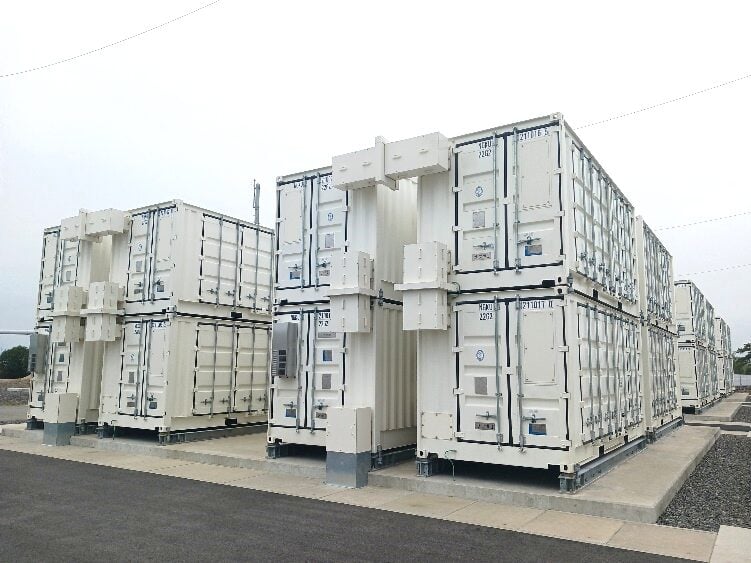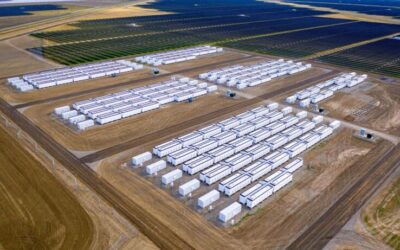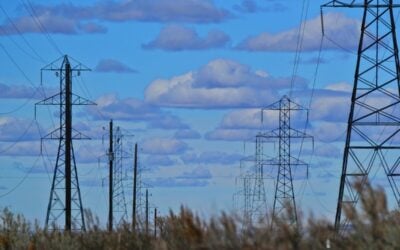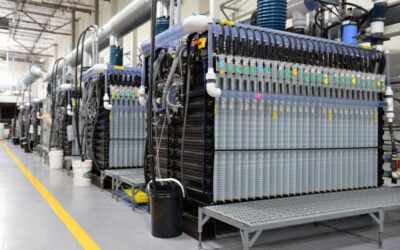
Japanese manufacturer NGK Insulators’ proprietary battery tech features in a large-scale project that has just come online in its home country, as a pilot begins in the US.
NGK’s sodium-sulfur (NAS) battery is one of the most commercially mature non-lithium electrochemical technologies for grid-scale energy storage applications. Its manufacturer markets it as suitable for medium—to long-duration energy storage (LDES) applications of up to about 7-hour duration.
The high-temperature battery operates at 300°C using a sulfur anode and sodium cathode, designed to operate with less than 1% capacity degradation per year of operation, even through daily cycling at full depth of discharge.
The latest iteration of the NAS battery system, MODEL L24, was launched in April of last year and announced by NGK and its technology partner, German chemicals company BASF.
Try Premium for just $1
- Full premium access for the first month at only $1
- Converts to an annual rate after 30 days unless cancelled
- Cancel anytime during the trial period
Premium Benefits
- Expert industry analysis and interviews
- Digital access to PV Tech Power journal
- Exclusive event discounts
Or get the full Premium subscription right away
Or continue reading this article for free
At that time, NGK said over 720MW/5,000MWh of sodium-sulfur systems have been deployed across more than 250 locations worldwide since the tech first went onto the market more than 20 years ago.
~6-hour duration Toho Gas project in Mie, Japan
Japanese gas company and utility Toho Gas, which is headquartered in Nagoya, the city where NGK is also headquartered, has just completed a grid-scale NAS battery project.
Tsu Storage Battery Plant is located in Tsu City, Mie Prefecture, in the southwestern part of Japan’s main island, Honshu.
The project has been built at the former site of a liquid natural gas (LNG) terminal and features NAS batteries with 11.4MW output and 69.6MWh storage capacity (~6-hour duration at full rated power).
NGK and Toho Gas announced the project in August 2022, as reported by Energy-Storage.news. At the time, Toho Gas said the batteries would charge at off-peak times or times of abundant renewable energy, and discharge during peaks, helping the company adjust the supply and demand of its operations, while also participating in the growing suite of electricity market opportunities energy storage systems are eligible for.
The project also benefited from Japanese government subsidies designed to promote the adoption of energy storage through the Ministry of Economy, Trade and Industry (METI) Agency for Natural Resources and Energy. The central government scheme supports up to 30% of the Capex investment cost for equipment. Toho Gas’ project was approved during the 2021 financial year (FY2021).
Duke Energy selected NAS battery from more than 80 technologies
Duke Energy’s Emerging Technology Assessment (ETA) team selected the NAS technology for pilot deployment after evaluating more than 80 different options, according to a blog post on the US utility company’s website.
The test project will be installed at Duke’s Suwanne River Power Plant in Florida, which has already had numerous upgrades over the years to add natural gas peaking capacity and solar PV generation.
The utility said the system will be 5MW and 8-hour duration (~40MWh) and designed to evaluate the feasibility of sodium-sulfur as an alternative to lithium-ion (Li-ion) battery energy storage systems (BESS).
Duke said attractive aspects of the technology included the abundance and relatively low cost of sodium and sulfur, as well as the NAS battery’s high energy density.
“This pilot will help us study the technology’s performance, efficiency, and interaction with the grid,” Duke Energy’s project originator and execution developer Matt Gilton said.
Gilton added that findings from the project would be shared with organisations including the US Electric Power Research Institute (EPRI).





